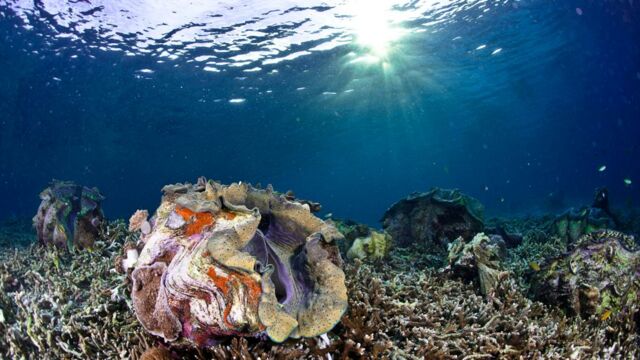Previously extinct species from 30,000 years ago has been found alive

Researchers find what they initially classify as an unknown species, which turns out to be a living mollusc thousands of years old.
It's a crazy rediscovery. An article published in the scientific magazine Zoo Keysproves the sighting of Cymatioa cooki. No, this is not an underwater cookie, but a species of mollusc that is between 28,000 and 36,000 years old. A video published on Sat1 shows the course of events, based on the publications in Zoo Keys.
Discover our latest podcast
Off the coast of Santa Barbara
The finder of this mere 10-millimetre-long bivalve mollusc is Jeffrey H. R. Goddard, marine ecologist at the University of California Santa Barbara and second author of the study alongside Paul Valentich-Scott.
More under this adMore under this adResearchers still don’t know how the Cymatioa cooki evaded science for so long.https://t.co/sc7dQd09J0
— Science News (@ScienceNews) November 19, 2022
The habitat where Goddard comes across the mussel is a very carefully studied area - the rocky intertidal zone in southern and central California. The researcher, who knows the zone like the back of his hand, comes across the species believed dead under the rocks at NaplesPoint.
More under this adMore under this adReference from 1937
As they did not recognise the shell they had found, Valentich-Scott searched through the literature of the last 250 years - and stumbled across a description from 1937. At that time, the researcher G. Willet had catalogued fossils of invertebrate molluscs as well as vertebrates from the Pleistocene period.
Meet the Cymatioa cooki, a species of clam that was believed to be extinct for 40,000 years but was just found alive on the coast of California, only about 3 of them have been found. They are 11 millimeters in length and the only proof of it existing before was a fossil. pic.twitter.com/SkEi1VsfOs
— Cadet // MINOR!! (@cadetbeepboop) November 16, 2022
Willet's description of the species Bornia cooki agrees with the Cymatioa cooki that has now been found alive. Thus, the now-renamed species is a sensational find! After all, it's not every day that science finds the living ancestors of fossils thousands of years old.
This article was translated from Gentside DE.
Sources used:
-zookeys.pensoft.net: A fossil species found living off southern California, with notes on the genus Cymatioa (Mollusca, Bivalvia, Galeommatoidea)
More under this adMore under this ad-sat1.de: Unfassbarer Fund: Seit 30.000 Jahren ausgestorbene Spezies taucht plötzlich wieder auf